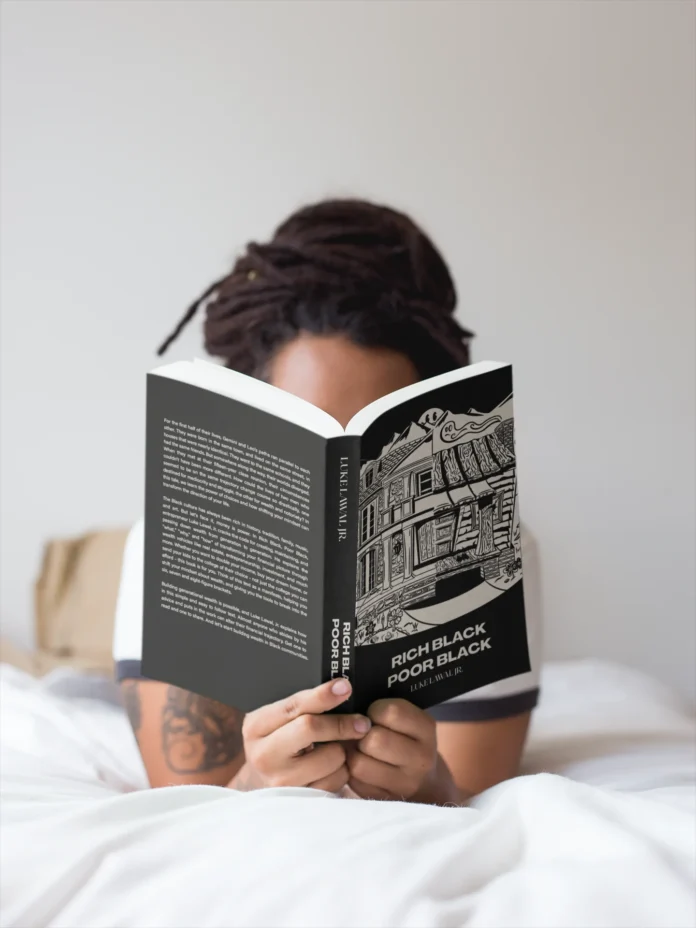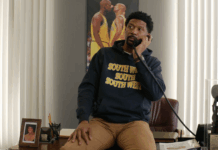( ENSPIRE Features ) First Look, HBCU Buzz Founder Luke Lawal Writes Book RICH Black, POOR Black, a Guide to Financial Literacy and Building Wealth
ENSPIRE Contributor: Wesley Tran
Entrepreneur, philanthropist, and thought leader Luke Lawal Jr, best known for founding the social platform HBCU Buzz, will add to his legacy as the author of his financial literacy book “RICH Black, POOR Black.” His book tells a story of how to attain and sustain financial stability and create general wealth through the pillars of mental, physical, social, and spiritual health as a guide for Generation Z. In addition to HBCU Buzz, Lawal is also the founder and CEO of L & Company as well as co-founder of Suited Lifestyle to give back to the community and grow future leaders.
HBCU Buzz is a community connected to what’s happening across HBCU campuses around the country while giving audiences the opportunity to share a common interest. The Buzz provides breaking news about all black colleges and universities by strategically utilizing references from schools, organizations, and media outlets. Lawal used his sharp methods to match his passion for change to lead HBCU Buzz to become “The most influential brand in the HBCU community,” in addition to receiving honors and recognition from AT&T Dream in Black (Black Future Maker Class of 2023), BET (Shine a Light Award 2022), The Creative Collective (Creative Collection Class of 2023) and Forbes (Leaders Taking Action 2022).

ENSPIRE had the amazing opportunity to interview Lawal about his upcoming book RICH Black, POOR Black.
What was the inspiration behind writing the book RICH Black, POOR Black?
Rich Black, Poor Black, is a self-help book that offers advice, direction, and insight on financial literacy, planning, and wealth. The inspiration behind this book is to create an understanding that wealth is essential. One of the things I touch on in RICH BLACK, POOR Black is “Social Health,” your social health refers to your community (whether that’s family, friends, neighbors, co-workers, etc) and your ability to stay connected. We cannot face this world on our own, and how we show up for those around us (and how they show up for us) has a huge impact on our capacity to grow our wealth in a way that really matters.
What do you think the next generation is lacking in terms of financial literacy?
I think as a generation we lack a fundamental understanding… the groundwork that supports creating wealth – the kind that will support and nurture communities for generations to come. One of the first things you need to do is improve your well-being in all aspects of your life, not just money. Holistic health breeds wealth. Rich Black, Poor Black speaks to becoming financially literate, and acquiring the ability to create and multiply your wealth, is an essential life skill. Whether we like it or not, the world’s axis turns on the dollar. Money is vital to the functioning of our societies.
How do you think your book can teach people about financial literacy?
Rich Black, Poor Black offers a lens on how Black people are excelling in nearly every sector, from sports and technology to business, politics, and entertainment. As resources become more accessible, and we continue to break down barriers to their acquisition, it’s imperative we learn the language of wealth as well. Everything from entrepreneurship to investing to saving is on the table. It is time to run with the big dogs and play in the big-stakes game of money. In the book I speak on “Intellectual Health.” Intellectual health is how you expand your knowledge and continue to flex your learning muscles. It means remaining in a constant state of curiosity and staying open to the vast wealth of information available to you. The more you know, the more you grow!
If there was one lesson that people would take away from your book, what lesson would that be?
My hope is that the reader (s) will take away from Rich Black, Poor Black the deeper meaning of wealth; multi-faceted, community-oriented, generational, Black. If we change our definitions, language, and attitude on and around wealth, we position ourselves to receive it, rather than just covet it.
What do you think is the most important thing to learn on the journey to becoming financially free?
Good roots. Community involvement. Understanding that being self-made is a myth. You need a good support system.
Would you say that financial literacy is easy to learn? Is it something that you could learn just by following in the footsteps of others?
History is amazing, teaches you what not to do BUT the real lesson comes from experience, practice, and the like. The layout in the book serves as a great foundation.
How important do you think financial literacy is for future generations? Do you think society could flourish without it?
Our community is always last on the table. Financial literacy gives us the opportunity to create our own table for ourselves.
To learn more about Luke Lawal check out his website, Instagram, Twitter, and Facebook. To pre-order RICH Black, POOR Black, be sure to click here.
Related Articles: T.D. Jakes Enterprises Starts National Movement to Spur Black Entrepreneurship, Financial Expert Octavia Conner Teaches Entrepreneurs How to Make Millions







